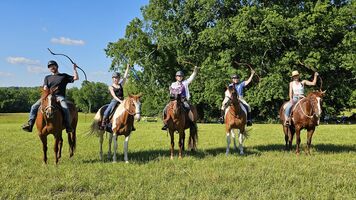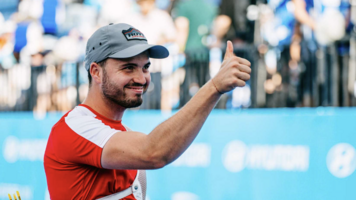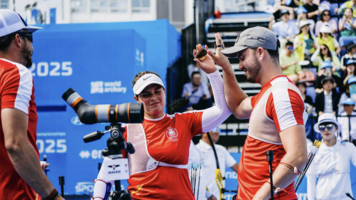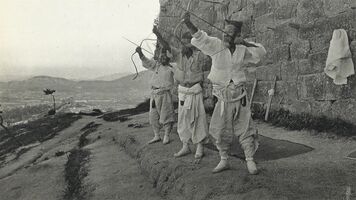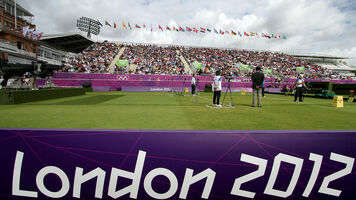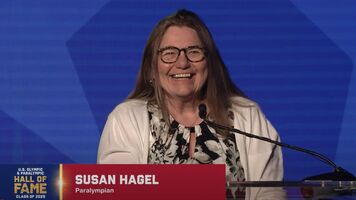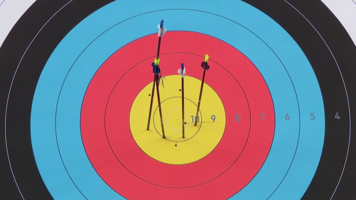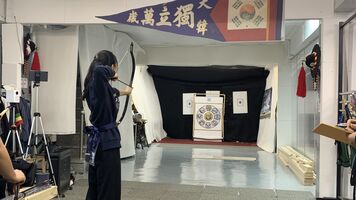Celebrating a decade of Colombian archery success
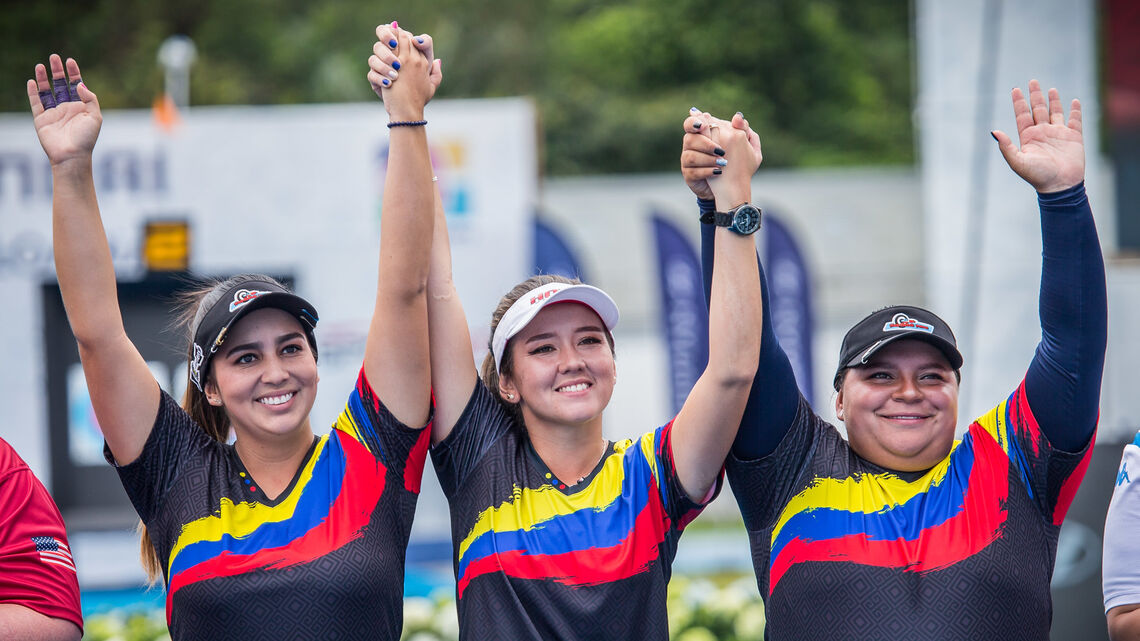
While archery fans across the globe will be looking forward to the 2022 Hyundai Archery World Cup starting later this month in Turkey, the season-opening event – and the archery field in Antalya – holds a special significance in the sport if you come from Colombia.
A decade ago, the words ‘Colombia’ and ‘archery’ were not necessarily that well known together.
It was in Antalya in 2013, a would-be 10 seasons ago had one not been cancelled due to the pandemic, that the South American nation telegraphed its arrival in the big leagues of the sport when a 17-year-old Sara Lopez took the country’s first Hyundai Archery World Cup stage win mere weeks before her teammate Alejandra Usquiano also took gold, this time on home soil in Medellin.
The back-to-back victories were quickly followed by the country’s first world championship title – and the results, led by Lopez, Usquiano and the compound women, have continued to flow ever since.
Who could have guessed, all those years ago, that we’d be witnessing such a competitive emergence that would be so sustained?
And just how did Colombia go from near-unknown to constantly in the conversation as one of the sport’s most dominant nations?
Beginnings
Sara Lopez took up the sport when she was 12. Her brother was sent, by her parents, to the archery field as a replacement for time spent playing video games. Sara went along, too.
There was no superstar Colombian archer at this time – like there is now – but she did already have role models to look up to, laying the path for what followed.
“When I started in 2009, Colombia was really small in archery in comparison to other countries, but it was growing, although really slowly,” explains Lopez.
“The only names that you would see in Colombian archery were Ana [Rendón], Daniel [Pineda] and some others who are not shooting anymore. But I really wanted to be like Alejandra [Usquiano]. She was the best archer in Colombia.”
Just two years older than Sara, Alejandra had recently begun representing the country abroad.
She’d make her Hyundai Archery World Cup debut in 2011, one year before Lopez. She’d win a stage of the international tour just after Lopez and she’d take the circuit title in 2013, too – one year before Lopez began her incredible run of individual dominance. It’s been a team effort.
“I got into the team, got to meet them and we all really wanted to put Colombia in the spotlight,” says Sara. “So we went to putting that dream to work.”
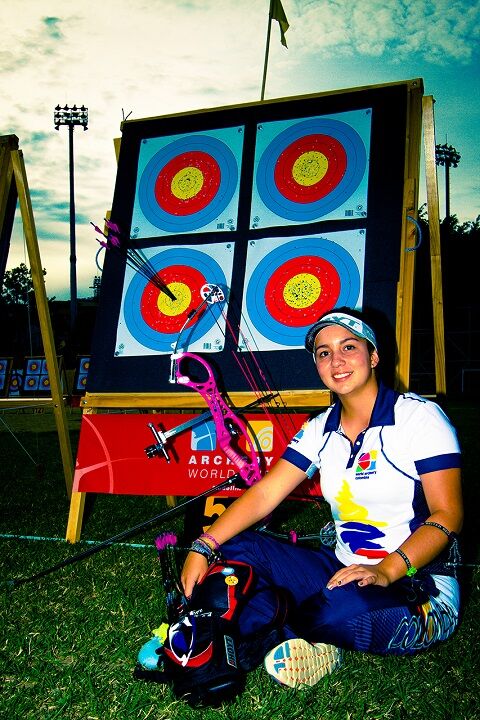
The new era
By the time July of 2013 had rolled around, the global archery spotlight was firmly on the Latin American country. Lopez had taken gold in Antalya and now the 2013 Archery World Cup was in the Colombian city of Medellin. It was time for Colombia’s archers to show up.
“It was a really big event,” says Lopez with a broad smile. “It was the first time that we had an event that big in our country.”
With Usquiano beating then-top-shot Erika Jones to individual gold, there was proof that Lopez’s win had been no fluke. There was now a systematic ability for Colombia to contest medals on the world stage and the opportunity for unprecedented success. It was, as Sara puts it, a “new era”.
“We were always at competitions as a team, but we [acted like we] were for training for a small event in our own continent. Not training as the team to win medals at a world championship,” says the now 26-year-old.
“We changed the way we were thinking from other events and as soon as we started seeing other archers as opponents and not as somebody you can never beat, even if you have your best day ever, then we stopped seeing [beating them] as something impossible.”
It’s phenomenal what a change in mentality can do in this sport.
Inter-regional competition is core to Colombian sports culture.
It’s one of the few countries around the world that holds a national games, in which states compete across multiple events in an Olympic-style structure. It produces competitive athletes but a fiercly competitive atmosphere within one nation.
“We started to work together and lost all that competitiveness within our own team,” says Sara, explaining that the in-team rivalries were turned into positive, supporting environment. “We were all from different cities, but as soon as we started to see each other as a team we got really strong and we started to win.”
While Usquiano took first in Medellin, Lopez took fourth – as did recurver Ana Maria Rendon, who at the time gave her own reasons for the improving results –and the compound women’s team finished second.
There’s no magic to homefield advantage, but what a result on home soil for the Colombian squad.
“It was amazing because we were able to be in the finals and the best memory I have from that event was my world record,” says Lopez, whose family travelled in from the coffee-producing region of Pereira. “I was the first woman to shoot 150 points. I shot that in front of my family who were there watching me.”
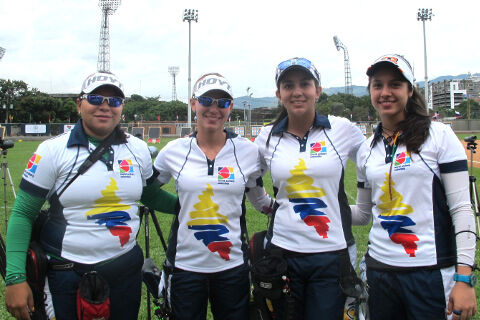
Renown
The success of Medellin made archery “more famous” in Colombia, according to Lopez, with “…more archers coming to the local clubs, interested in archery”.
At the time, she told World Archery: “Latin America was regarded as a weak force in archery, as a region that couldn’t achieve good results; we’ve proved that we can do it.”
A few months after Medellin, the team had an opportunity to prove themselves once again. The setting was the beach resort of Belek, just a few miles along the coastline from the city of Antalya in Turkey, and the event was the 2013 World Archery Championships.
“We weren’t expecting anything at all,” said Lopez, looking back with emotion on that moment in time for her, and for her country.
“It was my first world championship with the team and we won the first-ever gold medal for Colombia at the event. That was the start of a whole new era for us.”
Lopez, Usquiano and Aura Maria Bravo qualified second in the now-famously windy conditions then cruised through the brackets to eventually defeat the Netherlands in the final for an historic victory.
Since then, Colombia has won a further four world titles as Sara has become a world-record-breaking, world-ranking-dominating, six-time-circuit-winning ambassador for the sport – and her country – in all four corners of the globe. And she’s not the only archer from Colombia to have made waves on the world stage.
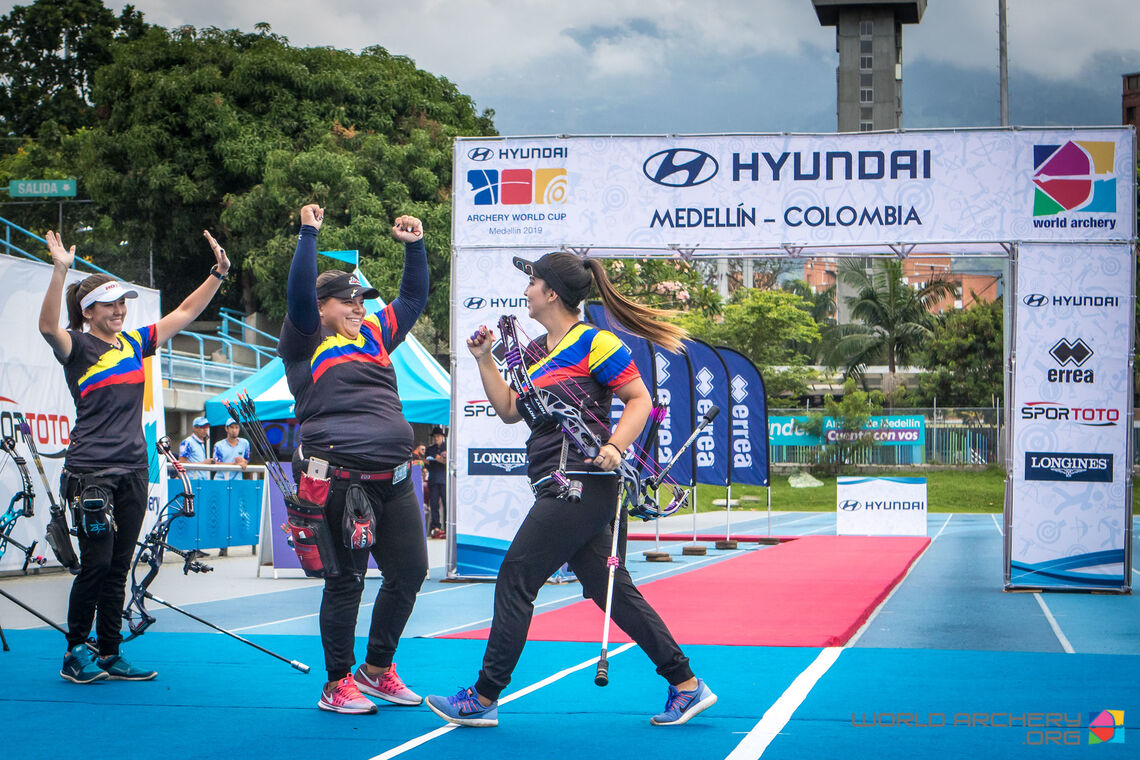
Trending up
Like any sport, but particularly in archery, there’s an ebb and flow. Wins can happen – but consistent winning can be hard to find. Lopez and Colombia, however, continued, and continue to this day. And the results have undoubtedly been led by their women.
They’ve won titles at the Pan American Championships, Pan Am Games and world championships, including the most recent team event, at Yankton 2021, while Lopez saw a memorable 2013 continue with double gold at the World Archery Youth Championships in Wuxi on her way to currently holding well over 60 medals on the global stage, a third of them coming from the Hyundai Archery World Cup.
“We were able to continue to win by working together,” says Lopez, who is the current world number one women’s recurve.
“Even if we live in different cities, we all train really hard and communicate as much as we can to work as a strong team. We all have a responsibility in the team. It was just a matter of a lot of people helping us to grow together as a team, to be able to win.”
The approach has worked.
“Since 2013, in every single event that we have participated in, we have always come back with at least one medal.”
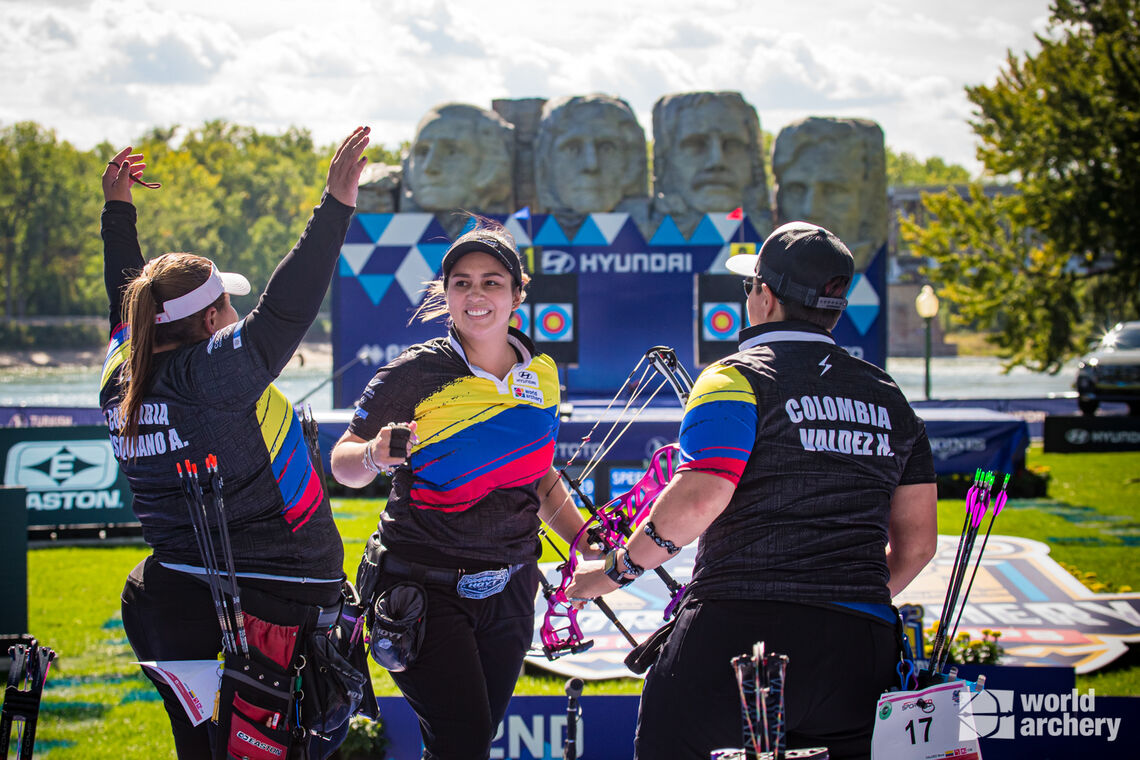
City of eternal spring
Medellin will host a stage of the Hyundai Archery World Cup yet again in 2022. It’ll be the sixth time in the circuit’s 16-year history, after 2013 (stage 2), 2014 (stage 2), 2015 (stage 3), 2016 (stage 2) and 2019 (stage 1).
And Lopez cannot wait.
“As soon as the World Cup came to Medellin other sports were interested in having events there and I’m really excited because Medellin keeps bringing more events for different sports,” she says. “People in Colombia are really proud of the events that they put together and will be really excited to us perform there, it will be amazing.”
The climate in Medellin, with its temperatures in the low 20s and little wind, is perfect for archery. And while Lopez’s hometown is a short flight away, the Colombian national team – and many of the country’s wider archery community – has its base in the city.
“We’ll have new archers being able to meet their heroes and just be able to watch who they usually watch on TV. To be there, in person, will be great for them,” says Sara. “Every time we have a World Cup all the [younger] archers ask me to take pictures of them with the big archer because they’re so nervous. It's really cool to be able to talk to these big archers [for them] because they are our friends.”
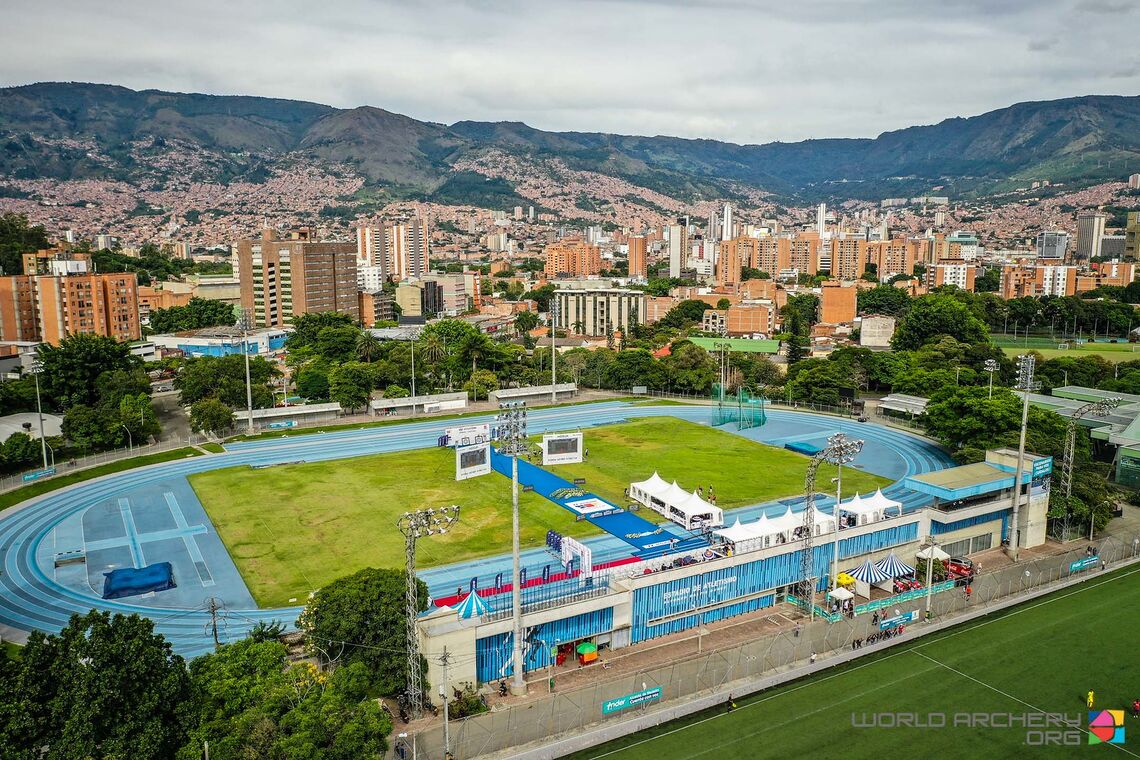
Legacy building
Despite the wins and the accolades, Sara still speaks of her fellow elite athletes with nothing but admiration. While they may be inspiring the next generation, so is she, and it’s evident in the number of new archers coming up in Colombia, particularly compounders.
One of them may one day replace her.
“We have more archers in Colombia that are not even in the team, that are really strong,” she explains. “We know that even if we’re gone, Colombia will continue to be really strong because we’ve now got more support from our federation, better coaches and support from business.”
Looking back over at legacy is something that Lopez will consider later. At only 26, she’s undoubtedly the most successful compound woman of all time, and one of the greatest to ever do the sport, but she’s by no means done, especially when there are more major events coming on home soil.
“I’m really confident in our team this year,” says Lopez about her chances, before looking toward Medellin. “I want my family to see me in the finals even if it’s for the bronze medal. I don’t care. I love the way they feel when they see me win because they made a lot of sacrifices.”
“My dad gets really excited to see me win and the pressure [for me] is not because I want to medal, it’s because I want them to be proud of me. I just want them to see me there…”
She pauses during the interview. Then adds a word, quietly, with a knowing smile, “…winning”.


